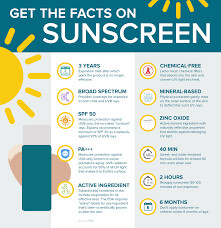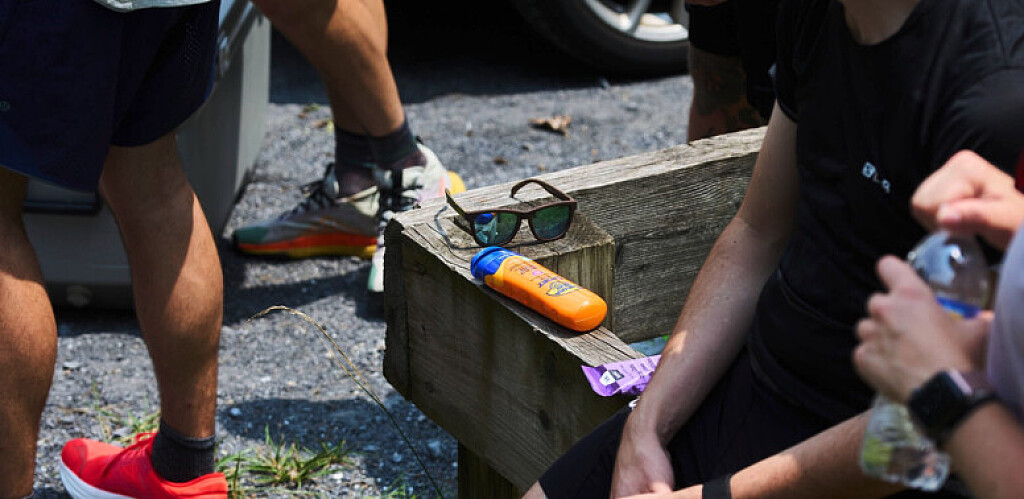Running News Daily
Running News Daily is edited by Bob Anderson. Send your news items to bob@mybestruns.com Advertising opportunities available. Train the Kenyan Way at KATA Kenya and Portugal owned and operated by Bob Anderson. Be sure to catch our movie A Long Run the movie KATA Running Camps and KATA Potato Farms - 31 now open in Kenya! https://kata.ke/
Index to Daily Posts · Sign Up For Updates · Run The World Feed
Does Sunscreen Expire? Experts Answer Your Qs
Here’s how to tell if your sunscreen needs a refresh. Plus, the best ways to store it for optimal efficacy.If you’re like many runners, you might have the same bottle of sunscreen sitting in your bathroom cabinet for longer than you can remember. And, like many, you probably face a common dilemma: Keep or toss?
The simple verdict: Sunscreen definitely expires, so toss yours if it’s past its prime.

MORE FROM RUNNER'S WORLD ON APPLE NEWS
According to the Skin Cancer Foundation, slathering on sunscreen every day can prevent premature skin aging and slash your melanoma risk by 50 percent. (ICYMI, melanoma is the most dangerous form of skin cancer.) But sunscreen that’s passed its expiration date won’t do your skin any good.
As runners, we log more hours in the sun than most people, which puts us at greater risk for sunburn and skin cancer. We owe it to our skin (and overall health!) to give it the best sun protection possible.
Here, we explain why sunscreen expires and how to tell if yours has.
Why does sunscreen expire?
Sunscreen contains active ingredients that shield your skin from UV rays. In chemical sunscreens, you may find ingredients such as octisalate and/or avobenzone. According to the Skin Cancer Foundation, these ingredients absorb UV rays like a sponge before they can do any damage. In mineral sunscreens, common ingredients include titanium dioxide and zinc oxide, which physically block the rays before they enter your skin.
Over time, these active ingredients break down. When this happens, they become less effective at protecting your skin from harmful UV rays, leaving your skin vulnerable to sunburn and damage, says Cameron Rokhsar, M.D., the founder and director of the New York Cosmetic, Skin, and Laser Surgery Center and an associate clinical professor of dermatology at Mount Sinai Hospital in New York City.
Therefore, it’s essential to keep tabs on your sunscreen’s status. Using an expired product is not only pointless, but it can give you a false sense of security during sunny runs.
Are there signs to look for that show my sunscreen has expired?
“Unfortunately, there’s no reliable way to test if a sunscreen has expired,” says Shari Lipner, M.D., Ph.D., a dermatologist with Weill Cornell Medicine in New York City. However, some sunscreen manufacturers print an expiration date on the bottle or label.
For products that don’t have that expiration date (or if you threw the packaging away), know that all sunscreen manufacturers have to prove that their product will remain effective for at least three years, per the U.S. Food and Drug Administration (FDA). If that’s the case, write the purchase date on the bottle to track how long you’ve had it, Lipner suggests. Consider your sunscreen expired at the three-year mark.
Sunscreen can also expire earlier if exposed to heat, humidity, and sunlight. According to the Cleveland Clinic, chemical sunscreen is especially vulnerable because the active ingredients tend to be more unstable when exposed to heat than mineral sunscreen ingredients.
The takeaway? Don’t rely on expiration dates alone. “If you notice any changes in the consistency, color, or scent of the sunscreen, it could indicate that it’s expired or undergone some degradation, and it’s best not to use it,” Rokhsar says.
For example, many chemical and mineral sunscreens contain inactive ingredients that help the formula spread evenly. When these ingredients break down, you may notice that the sunscreen is gritty and/or tough to rub into your skin, according to the Cleveland Clinic.
You may also experience skin reactions like acne and rash when inactive ingredients degrade, Rokhsar says. Plus, many sunscreens contain preservatives. When these deteriorate, bacteria and fungi are more likely to grow inside the container, leading to skin infections and acne, the Cleveland Clinic notes.
So, if you start breaking out or developing rashes after using your sunscreen, it’s time to get a fresh bottle.
What’s the best way to store sunscreen?
“To extend the life of your sunscreen and ensure its effectiveness, store it in a cool, dry place,” Rokhsar says. In other words, don’t leave it in your car during hot summer runs or on top of your towel during beach days. Excessive heat breaks down the active ingredients that protect your skin from harmful UV rays, Rokhsar explains.
A better approach: Apply sunscreen before leaving home so you don’t have to keep it in your car during your run. “If you’re at the pool or beach, I suggest wrapping [the sunscreen] in a towel,” Lipner says. You can also stash it under some shade or keep it in the beverage cooler.
Also, keep the container tightly closed to prevent exposure to air, “which can also contribute to the breakdown of the active ingredients,” Rokhsar says.
So, can you use expired sunscreen?
Using sunscreen that’s gone bad won’t protect your skin from the harmful UV rays that cause skin damage and cancer. You’ll likely irritate your skin to boot. So, toss your sunblock if it’s passed its expiration date, it’s been three years since you purchased it, or you notice changes to the product or your skin.
You can prolong the shelf-life of your sunscreen by storing it in a cool, dry place. However, you don’t need to worry about expiration dates if you use sunscreen the way you should. “If you’re using sunscreen properly, which means applying a generous amount [or about a shot glass’ worth] and reapplying frequently, such as after swimming or sweating, a bottle shouldn’t last more than a season,” Rokhsar says.
by Runner’s World
Login to leave a comment




